Dystopian
Dystopian fiction portrays oppressive or nightmarish societies, often warning about political or environmental dangers.
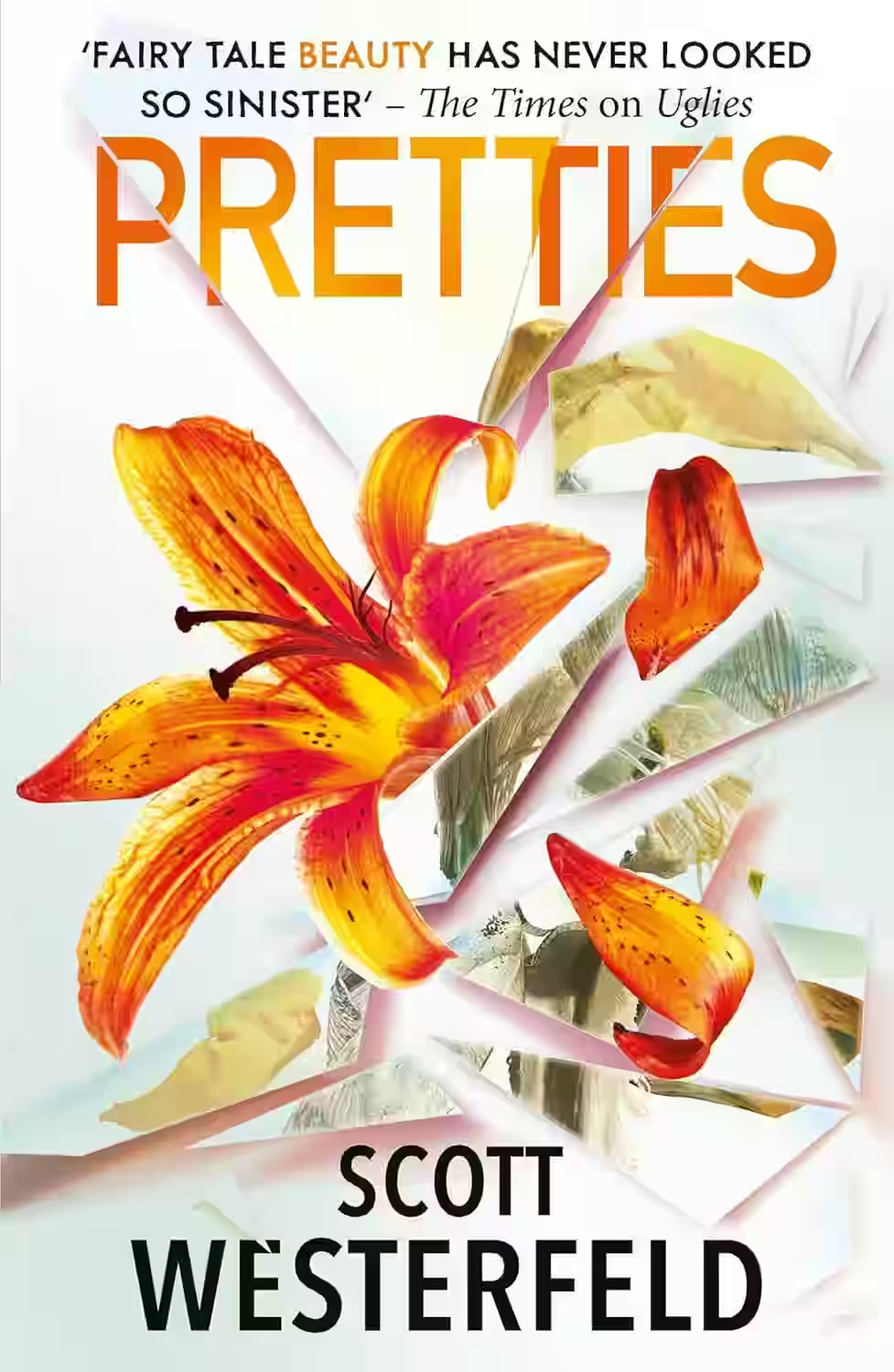
Pretties
Series: Uglies (#2)
In 'Pretties,' the second installment of Scott Westerfeld's 'Uglies' series, readers are transported back into a world where everyone is obsessed with physical perfection. The story follows Tally Youngblood, who has undergone the transformation into a 'Pretty,' reveling in her new life filled with beautiful people and endless parties. However, Tally's carefree existence is threatened as she receives a chilling reminder of her past, pushing her to question the superficial perfection she's embraced. Themes of identity, choice, and the cost of beauty are explored against the backdrop of a society where conformity is prized. Westerfeld effectively balances thrilling action with thought-provoking social commentary, making this a compelling read for young adults and retaining the momentum from its predecessor. 'Pretties' challenges readers to consider the true definition of beauty and the sacrifices made for acceptance, all while keeping them hooked with its fast-paced plot and evolving characters.
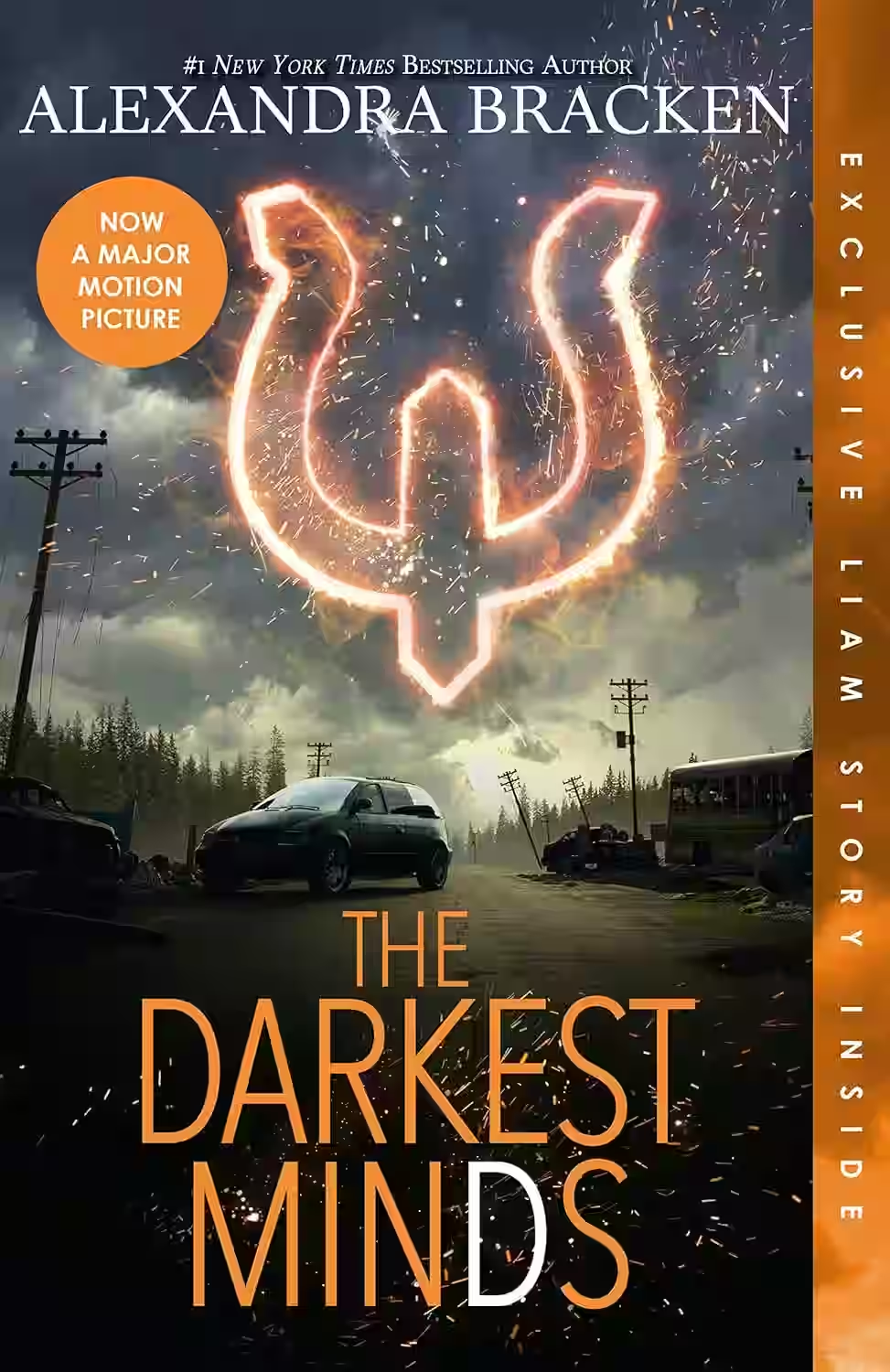
The Darkest Minds
Series: The Darkest Minds (#1)
In 'The Darkest Minds' by Alexandra Bracken, readers are thrown into a dystopian world where a mysterious illness has eradicated most of America's children, leaving the survivors with strange and formidable abilities. The story follows Ruby Daly, a young girl confined in a brutal government rehabilitation camp due to her extraordinary powers. As she escapes with a band of fellow gifted teenagers, Ruby embarks on a journey not just for freedom but for a deeper understanding of her own identity and trust. Bracken weaves a gripping narrative filled with action, suspense, and camaraderie, tackling themes of identity, resilience, and hope in the face of systemic oppression. The book is a thrilling exploration of power dynamics and the importance of self-discovery, making it a compelling read for fans of young adult dystopian fiction.
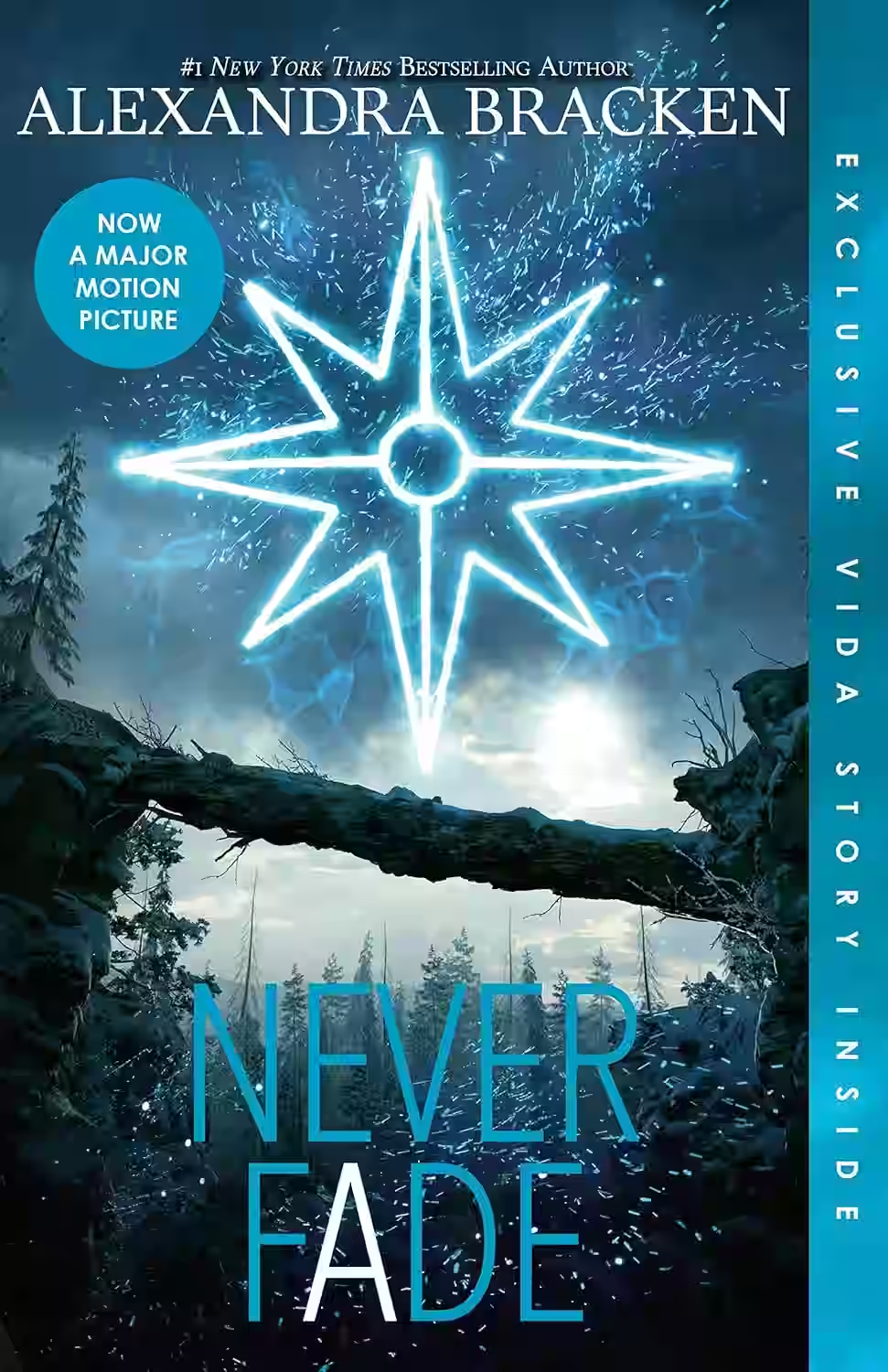
Never Fade
Series: The Darkest Minds (#2)
In 'Never Fade', the second installment of Alexandra Bracken's The Darkest Minds series, we plunge deeper into a dystopian world where children with special abilities are both feared and revered. Ruby Daly returns, now more powerful and resolute, leading a group that dedicates their lives to rescuing kids from government camps. This action-packed saga explores themes of identity, trust, and sacrifice as Ruby grapples with her own strength and the responsibilities it entails. Bracken's compelling writing not only showcases a world riddled with danger and alliances, but also reflects on the resilience of the human spirit. With unexpected twists and stirring emotional depth, this novel captivates and urges readers to question the cost of freedom in a fractured society.
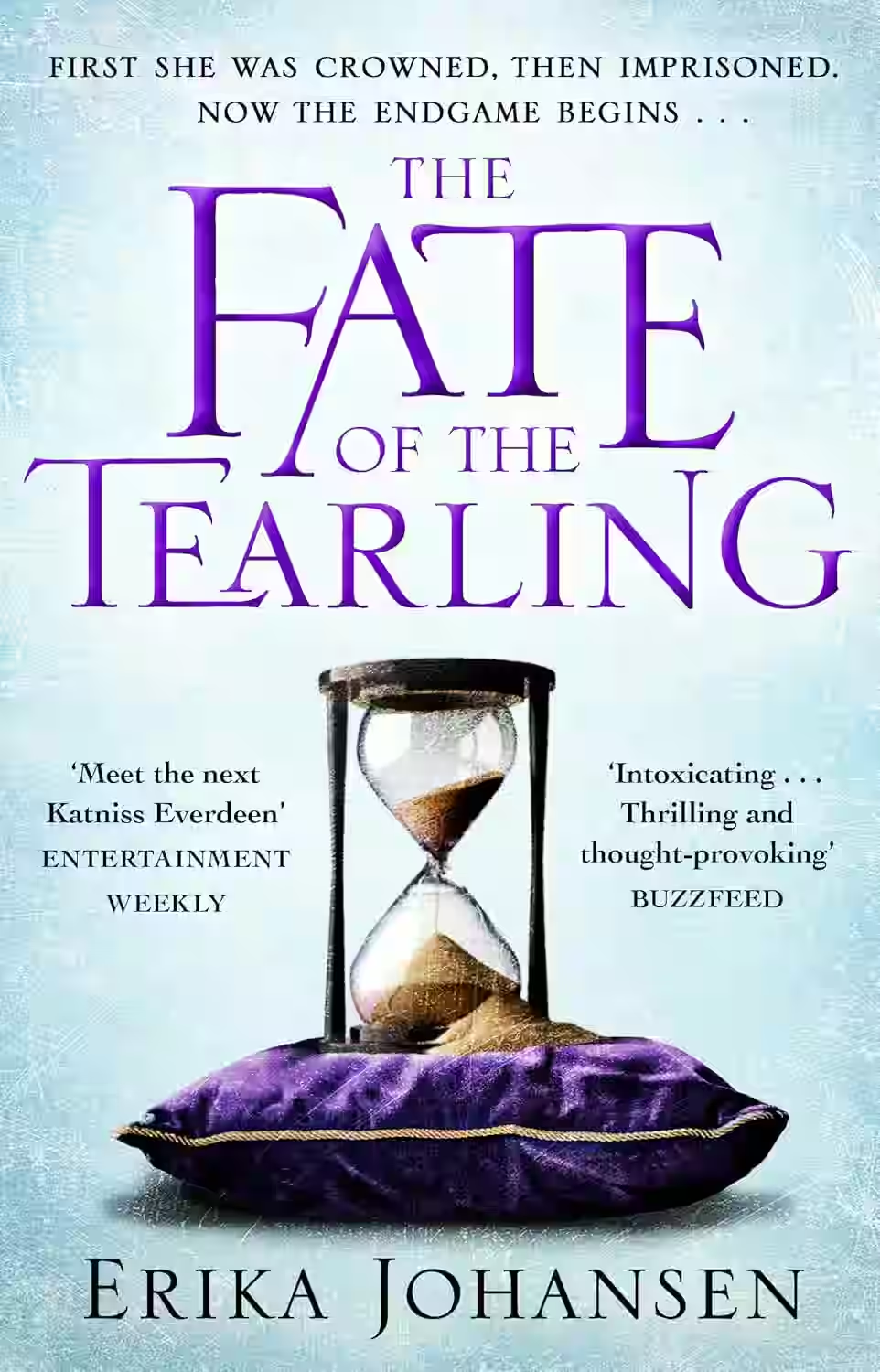
The Fate of the Tearling
Series: Queen of the Tearling (#3)
In 'The Fate of the Tearling,' Erika Johansen concludes her captivating Tearling trilogy with a blend of fantasy, political intrigue, and introspective complexity. The story follows Queen Kelsea Raleigh Glynn as she grapples with the consequences of her past decisions and the looming threat of the sinister Red Queen. Throughout the narrative, Kelsea must confront her inner demons and the dark secrets of the Tear's origin. Johansen skillfully weaves parallel storylines and time periods, exploring themes of power, sacrifice, and redemption. The book is a bold and thought-provoking finale that challenges readers to rethink the nature of heroism and moral justice.

A Clockwork Orange
A Clockwork Orange is a dystopian novel by Anthony Burgess, depicting a futuristic society where extreme violence is prevalent. The story follows Alex, a young delinquent who undergoes a controversial rehabilitation treatment that raises questions about free will and the morality of government control. The novel is known for its unique language, social commentary, and thought-provoking themes.
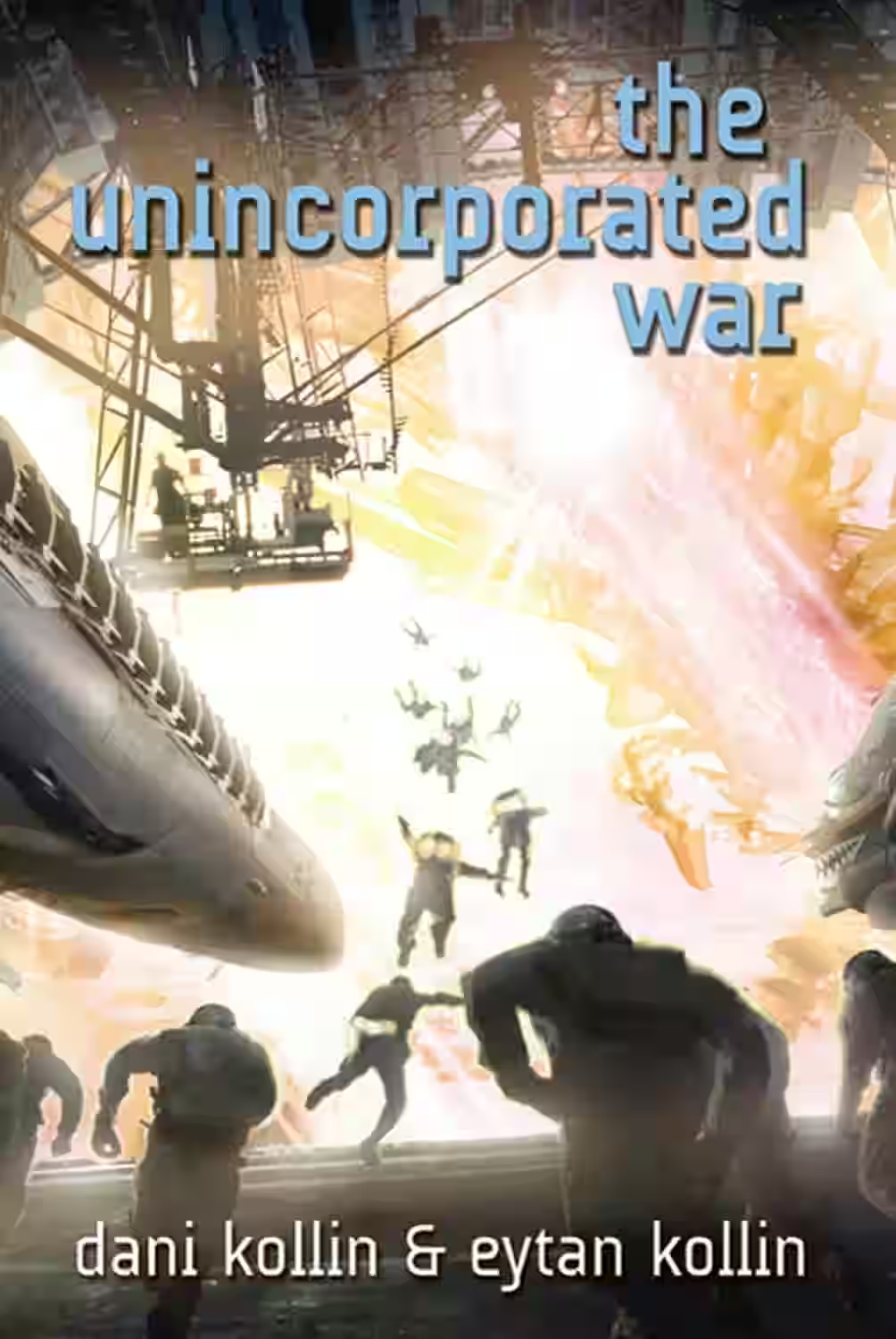
The Unincorporated War
Series: The Unincorporated Man (#2)
The Unincorporated War by Dani Kollin is an exhilarating continuation of the saga that began with The Unincorporated Man. Set in a future where individuals can be 'incorporated' (i.e., having shares sold of themselves), the book focuses on the life-or-death struggle for freedom and self-determination. In this sequel, the protagonist Justin Cord leads a fierce rebellion against the powerful corporations that control Earth. The novel delves deeper into themes of capitalism, personal autonomy, and what it truly means to be free within a highly controlled society. Rich with political intrigue and adrenaline-pumping action, the story poses thought-provoking questions about our own world and the nature of governance. The Kollin brothers have crafted a compelling narrative that keeps readers hooked with its complex characters and intricate plotting. The book stands out not only for its imaginative setting but also for its piercing social commentary.
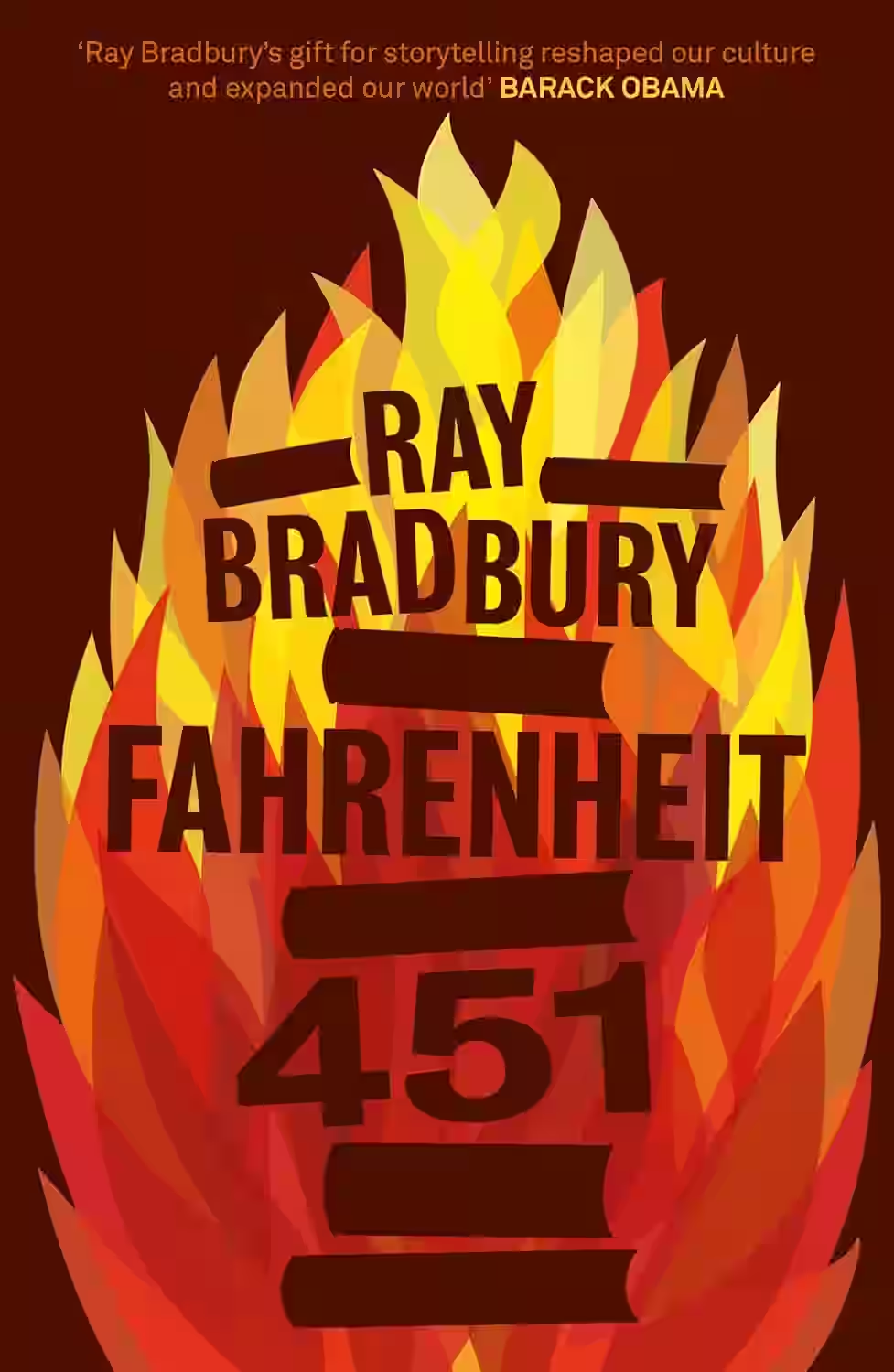
Fahrenheit 451
by Ray Bradbury
Ray Bradbury's "Fahrenheit 451" is a profound dystopian novel that delves into the consequences of a society bereft of critical thinking and free expression. Set in a future where books are banned and 'firemen' burn any that are found, the narrative follows Guy Montag, a fireman who begins to question his role in suppressing knowledge. The novel explores themes of censorship, the dehumanizing effects of technology, and the power of literature to inspire change. Bradbury's incisive commentary on conformity and intellectual repression remains remarkably pertinent, making it a timeless critique of society's foibles and the resilience of the human spirit in the pursuit of truth.
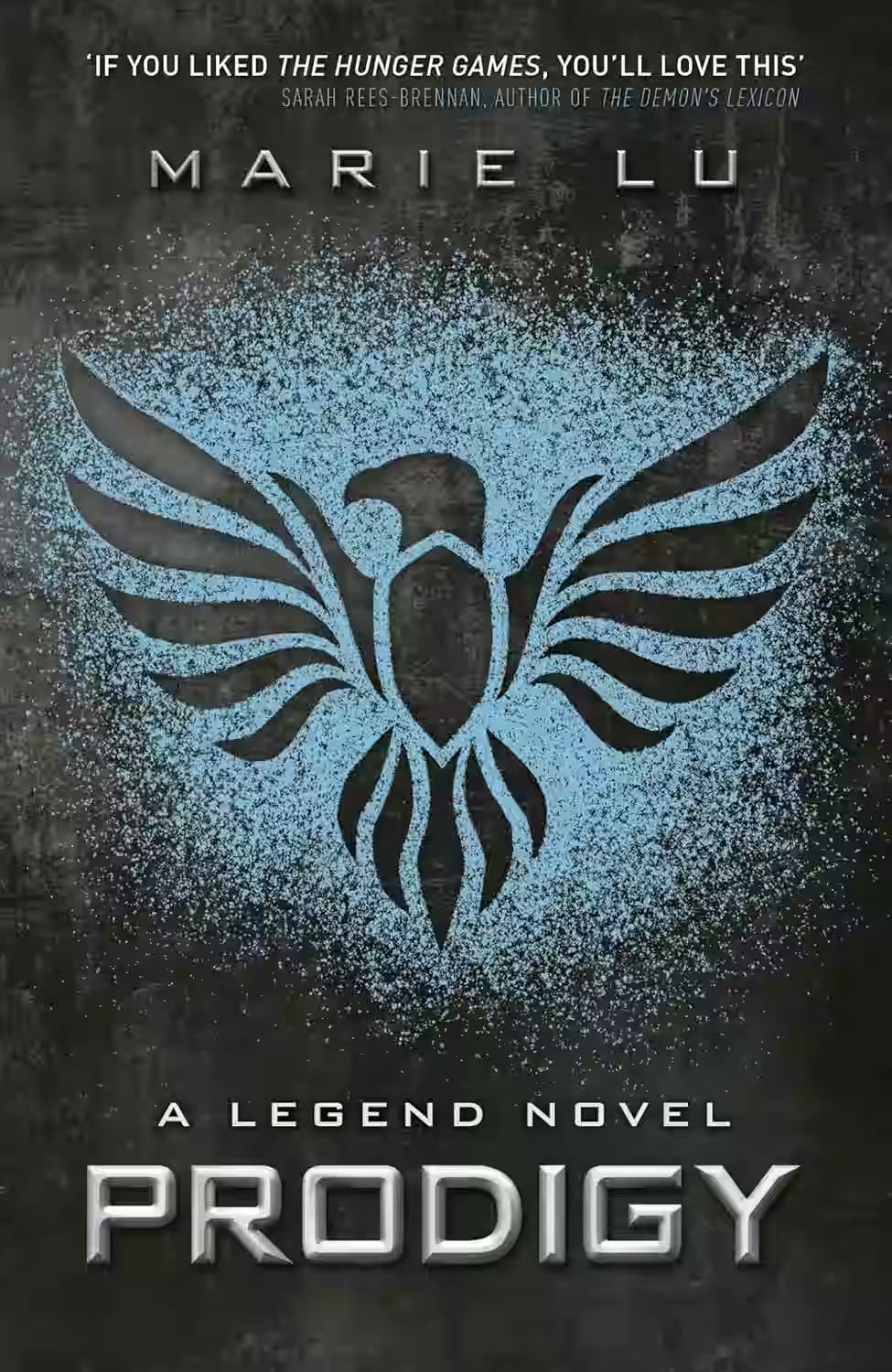
Prodigy
by Marie Lu
Series: Legend (#2)
In Marie Lu's 'Prodigy', the electrifying sequel to 'Legend', readers are once again immersed in a dystopian world where June and Day are fighting against a corrupt government. The story delves deeper into themes of loyalty, sacrifice, and the cost of revolution. As June and Day navigate political schemes and personal challenges, their bond is put to the ultimate test. The fast-paced action, intricate world-building, and complex character dynamics make 'Prodigy' a gripping read that keeps readers on the edge of their seats. Lu's vivid storytelling and moral dilemmas provide a thought-provoking experience that lingers long after the final page.
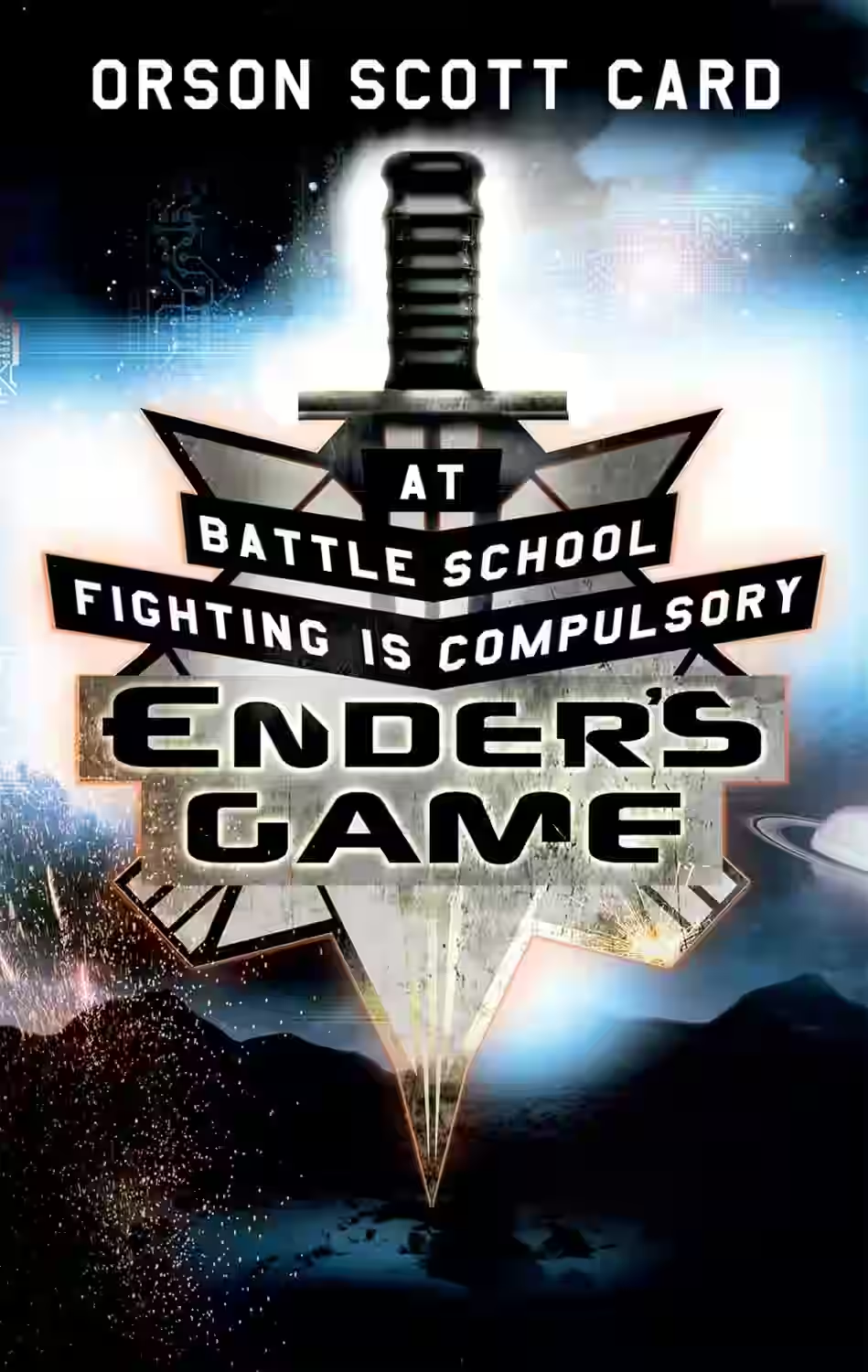
Ender’s Game
Series: Ender Quintet (#1)
Orson Scott Card's 'Ender's Game' is a captivating science fiction novel that follows the story of Andrew 'Ender' Wiggin, a brilliant young boy who is recruited to attend Battle School, a training ground for the galaxy's future military leaders in a war against an alien species known as the Formics. As Ender navigates through a series of complex challenges and simulations, he grapples with themes of power, morality, and the brutal realities of war. The book delves into Ender's struggle with his own humanity and the sacrifices he must make for the greater good. 'Ender's Game' is a thought-provoking and emotional journey that explores the depths of human nature and the consequences of one's actions.
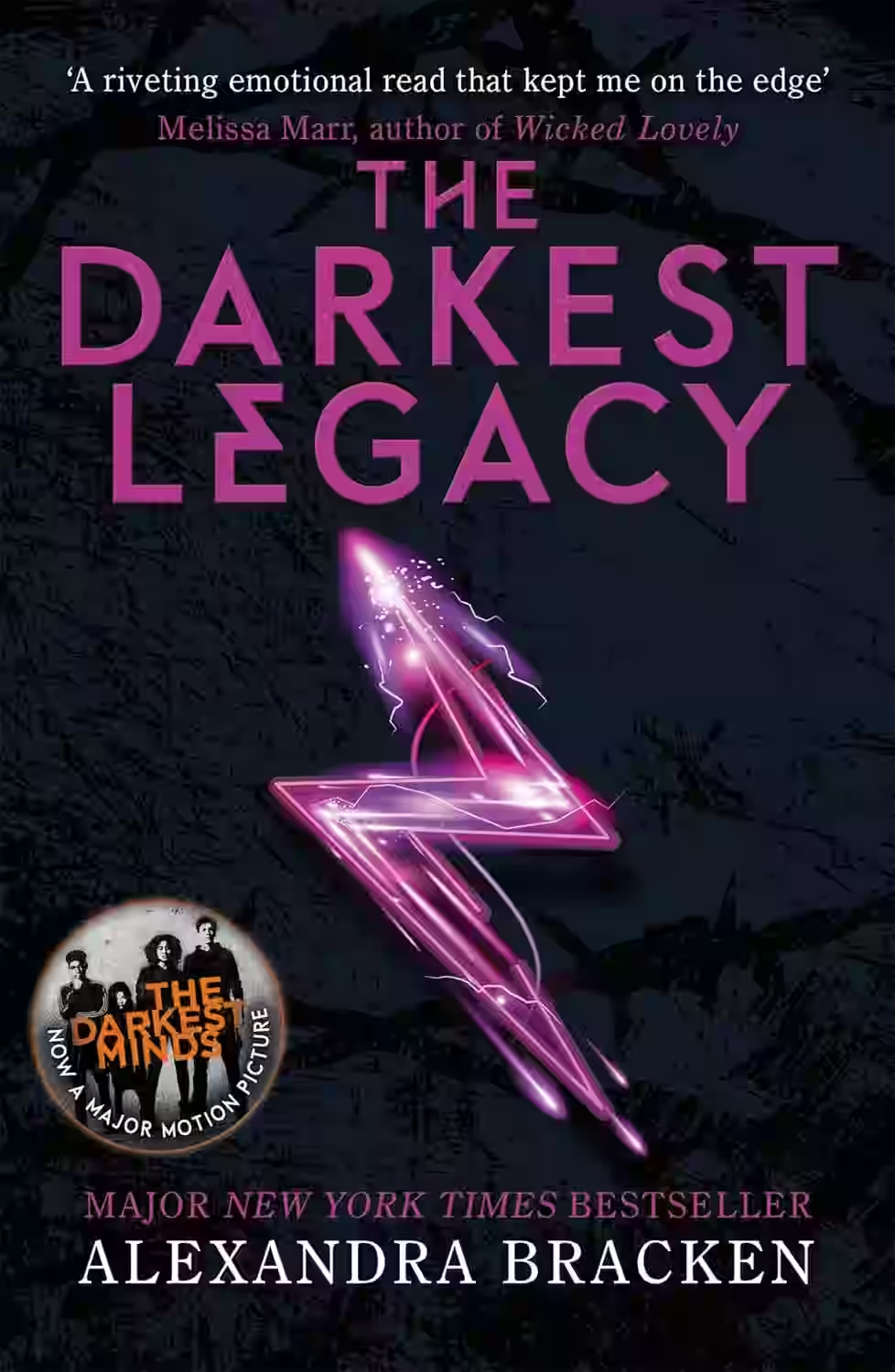
he Darkest Legacy
Series: The Darkest Minds (#4)
In 'The Darkest Legacy,' Alexandra Bracken returns to the dystopian world of her Darkest Minds series, this time centering the narrative around Zu, the resilient and tenacious protagonist who once served as a symbol of hope and change. Set five years after the initial trilogy, Zu has grown into a young advocate in a society still reeling from the chaos of its past. Tensions rise as she faces new political betrayals and societal unrest, forcing her to grapple with the weight of responsibility and personal sacrifice. Bracken expertly weaves action with emotional depth, exploring themes of trust, empowerment, and identity. 'The Darkest Legacy' is both a thrilling adventure and a poignant examination of how young people forge paths in flawed worlds, appealing to fans of the series and newcomers alike.
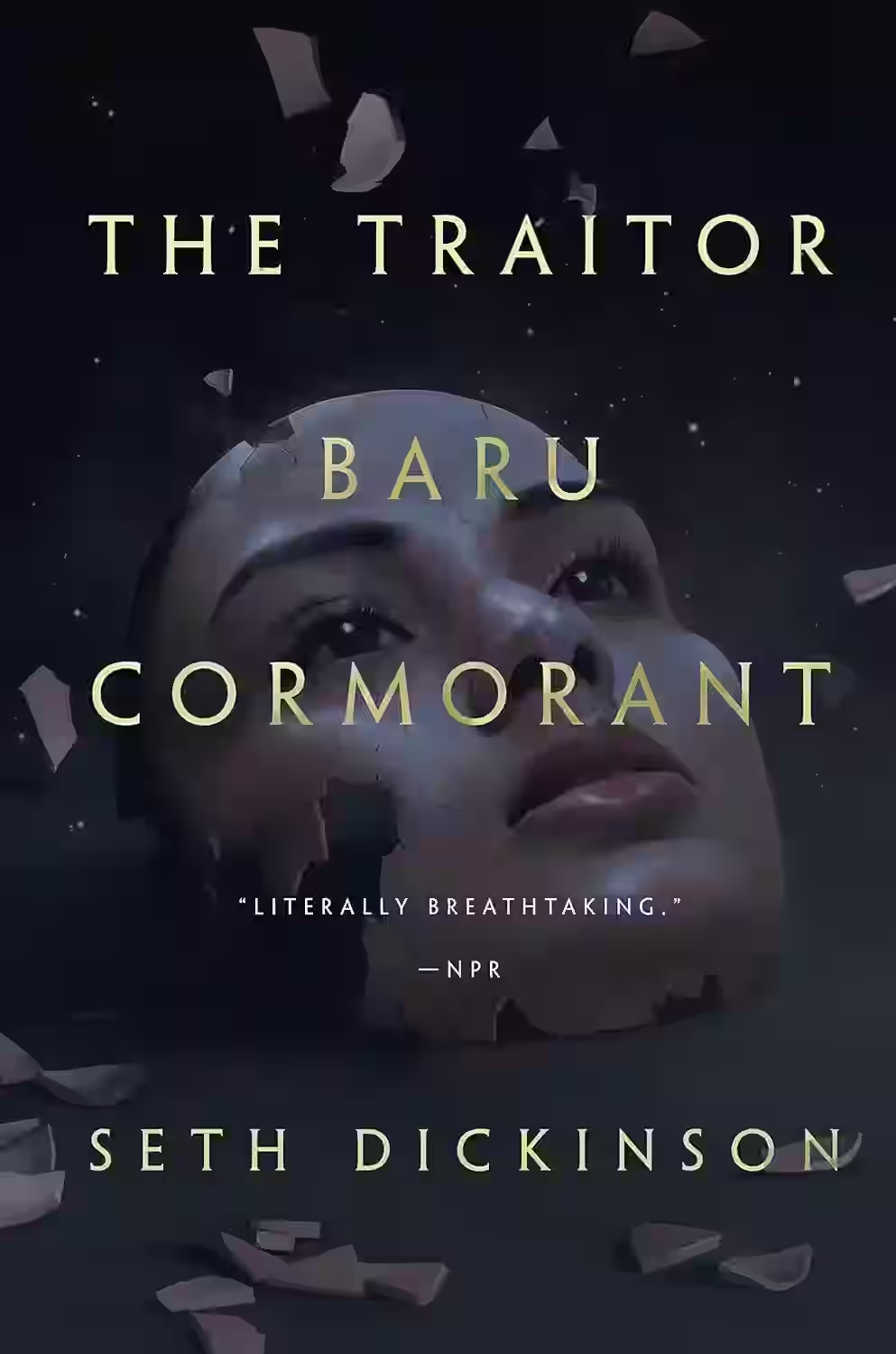
The Traitor Baru Cormorant
Series: The Masquerade (#1)
Seth Dickinson's 'The Traitor Baru Cormorant' is a captivating tale of power, manipulation, and sacrifice. The story follows Baru Cormorant, a brilliant strategist who navigates a treacherous world of colonial politics to seek vengeance for her home's destruction. As she rises in the ranks of a powerful empire, Baru must grapple with her loyalty to her people and the temptations of authority. Dickinson weaves a complex narrative that explores themes of identity, betrayal, and the cost of ambition. With intricate world-building and morally gray characters, this book delves into the darker aspects of human nature and leaves readers questioning the true nature of power.
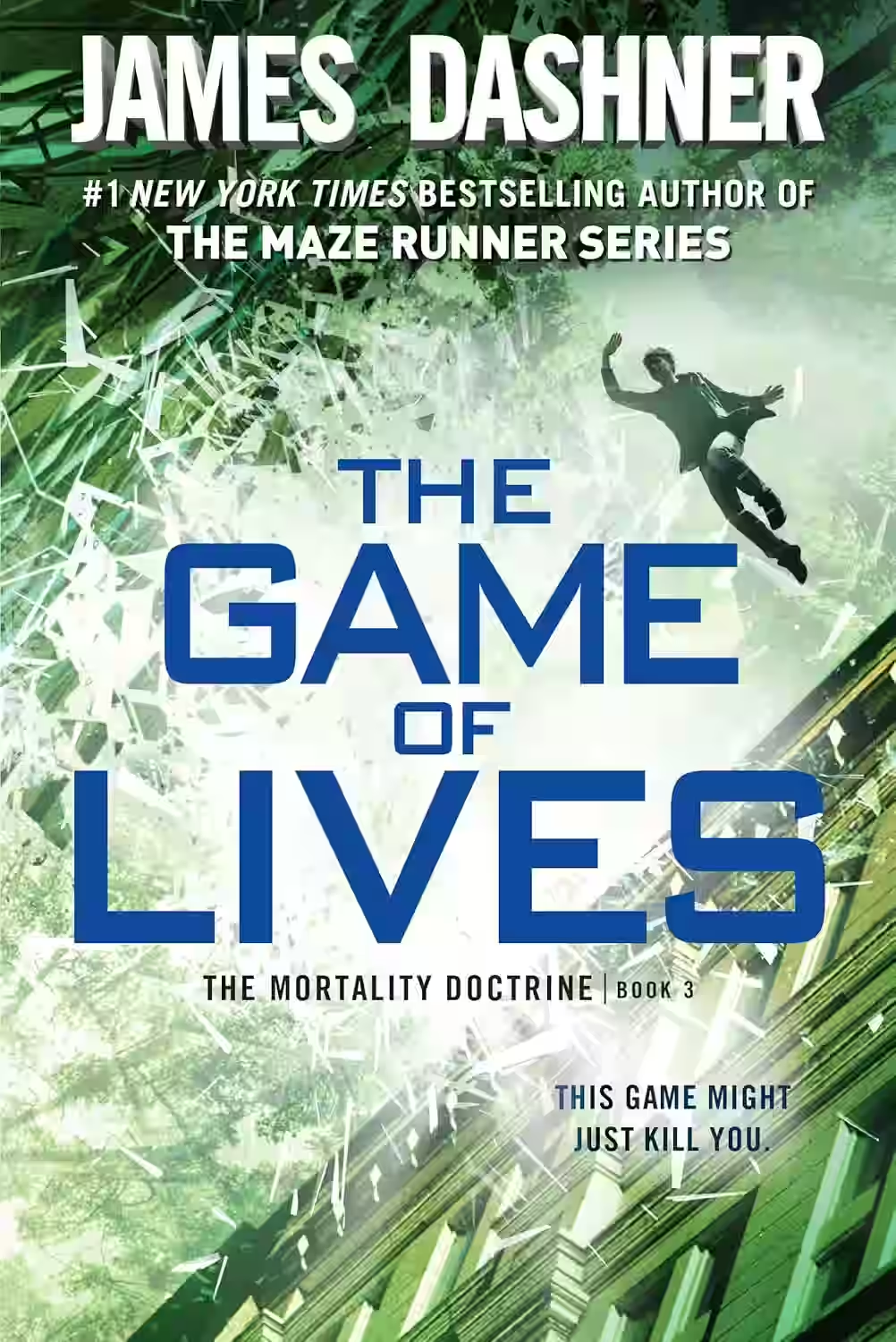
The Game of Lives
Series: Mortality Doctrine (#3)
In 'The Game of Lives,' the gripping final installment of James Dashner's 'The Mortality Doctrine' series, readers are thrust into a whirlwind of action, suspense, and ethical dilemmas. Michael and his friends are navigating the virtual world of Lifeblood Deep with the stakes higher than ever—humanity's fate rests on their decisions. The central theme explores the boundaries between technology and life, examining what it means to be truly 'alive.' Dashner's storytelling combines high-intensity action with deep philosophical questions, gripping the reader until the very end. As virtual and reality continue to blur, the narrative challenges readers to question the morality of technological advancements and ponder the essence of identity and consciousness.

Do Androids Dream of Electric Sheep?
Philip K. Dick's "Do Androids Dream of Electric Sheep?" is a seminal work of science fiction that delves into the complexities of identity, empathy, and the boundaries between human and machine. Set in a post-apocalyptic future where Earth is scarred by nuclear fallout, the novel follows Rick Deckard, a bounty hunter tasked with 'retiring' rogue androids. As Deckard navigates this desolate world, he grapples with his own understanding of humanity, morality, and the distinction between artificial and organic beings. The novel explores themes of existentialism and the quest for meaning in an increasingly dehumanized society. Its influence extends beyond literature, having inspired the iconic film adaptation "Blade Runner," and it remains a compelling exploration of consciousness and the human condition.
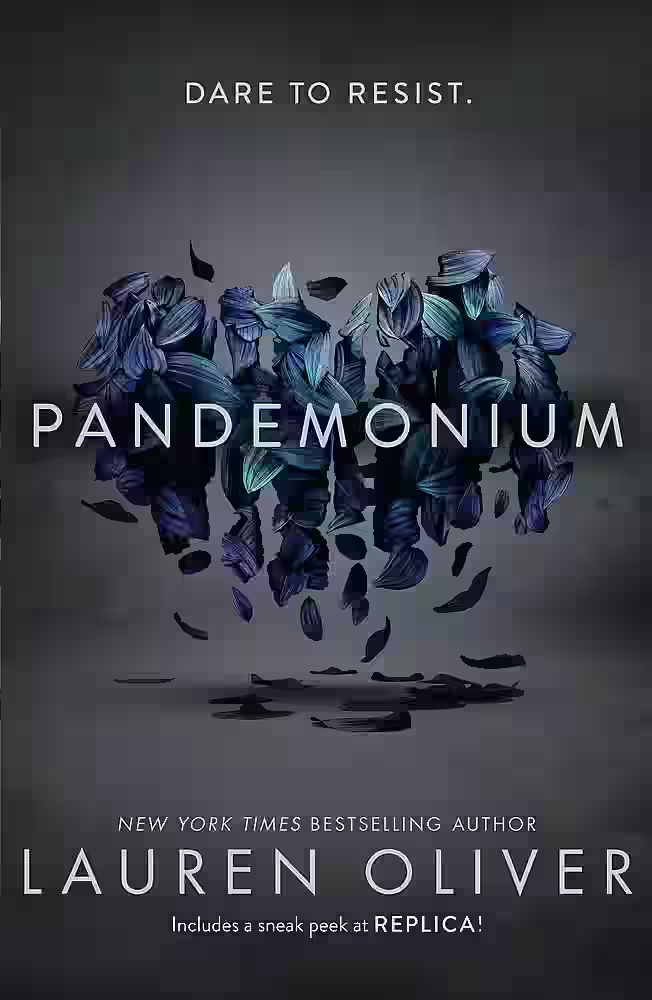
Pandemonium
Series: Delirium (#2)
In 'Pandemonium', the intense sequel to Lauren Oliver's 'Delirium', readers are thrust back into a world where love and passion are seen as diseases. Following Lena's daring escape from the oppressive society that forbids love, the narrative is split between her past struggle for survival in the Wilds and her present involvement with the resistance movement. Throughout, Oliver explores themes of identity, rebellion, and the intrinsic human longing for connection. The narrative's dual timeline adds depth to Lena's character and keeps the momentum swiftly moving. Oliver's evocative prose and richly imagined universe make for a gripping read that examines the boundaries between control and freedom, heartache and hope.
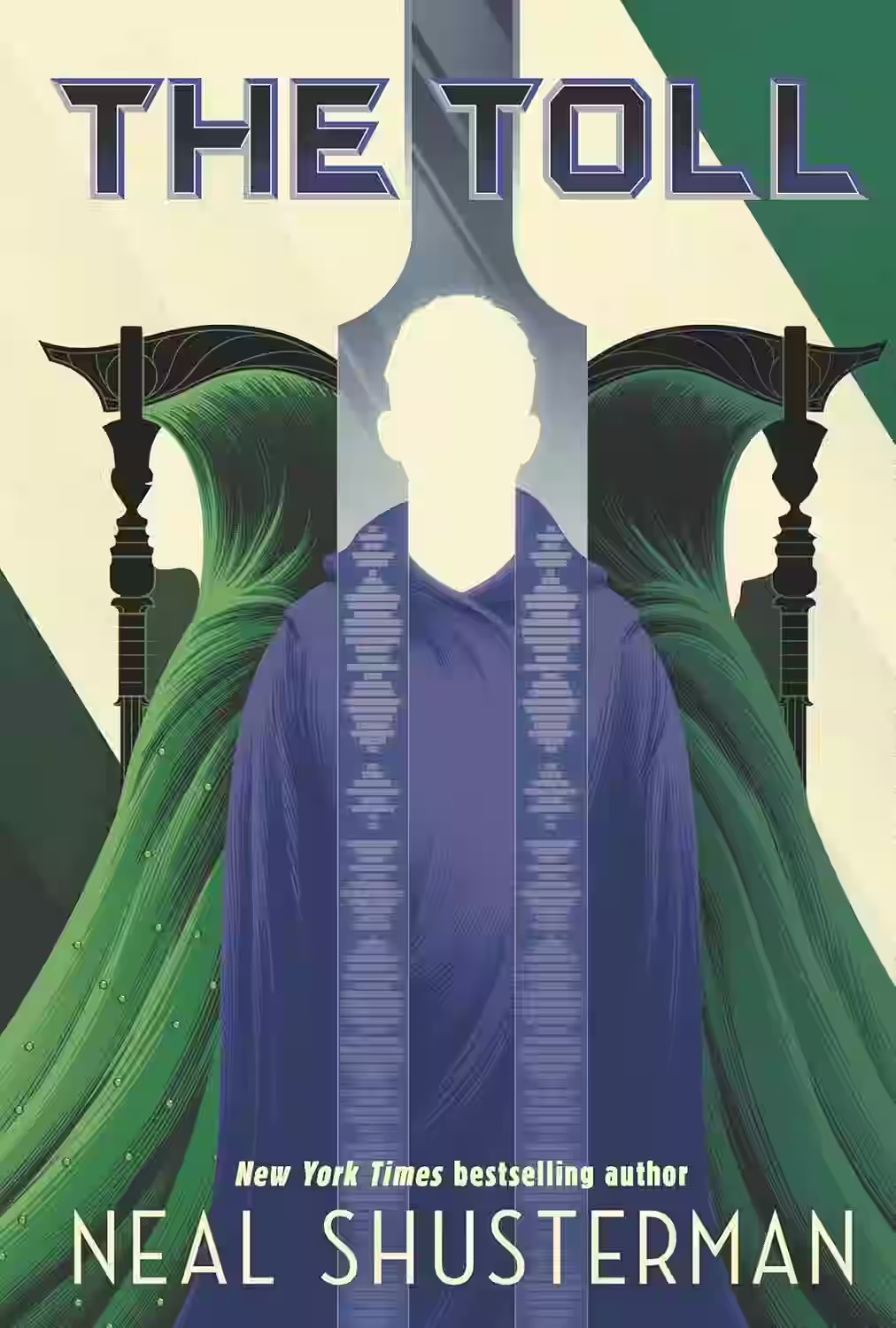
The Toll
Series: Arc of a Scythe (#3)
Neal Shusterman's 'The Toll' is a gripping conclusion to the thrilling Arc of a Scythe trilogy, exploring thought-provoking themes of power, corruption, and morality in a utopian society where death has been conquered. The story follows Citra and Rowan's diverging paths as they navigate a world on the brink of chaos, with the mysterious Thunderhead AI facing its greatest challenge yet. Shusterman masterfully weaves together intricate plotlines and complex characters, keeping readers on the edge of their seats until the final page. 'The Toll' is a richly imaginative and emotionally resonant tale that delves deep into the consequences of humanity's quest for immortality.
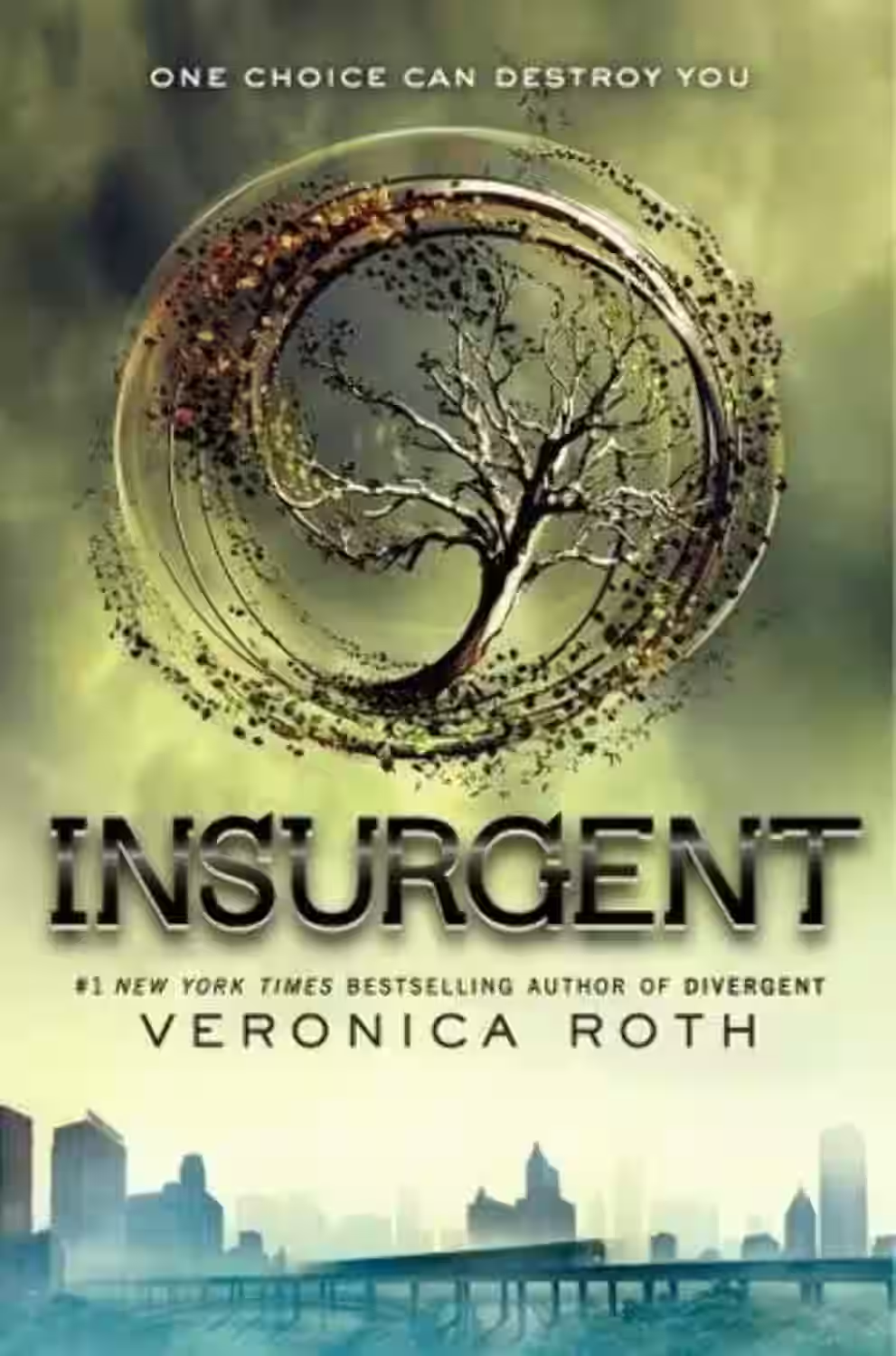
Insurgent
Series: Divergent (#2)
In 'Insurgent,' Veronica Roth continues the thrilling narrative of her dystopian world where society is divided into factions based on human virtues. Following the events of 'Divergent,' protagonist Tris Prior faces increasing political tensions and complex moral dilemmas. As she navigates dangerous alliances and unearths secrets that could alter her world forever, Tris is propelled into a quest for truth and survival. The book explores themes of power, identity, and sacrifice, blending high-stakes action with deep emotional conflict. Through Tris’s journey, Roth delves into questions about personal choice and societal responsibility, maintaining a gripping pace that captivates readers and deepens the series' overarching plot.
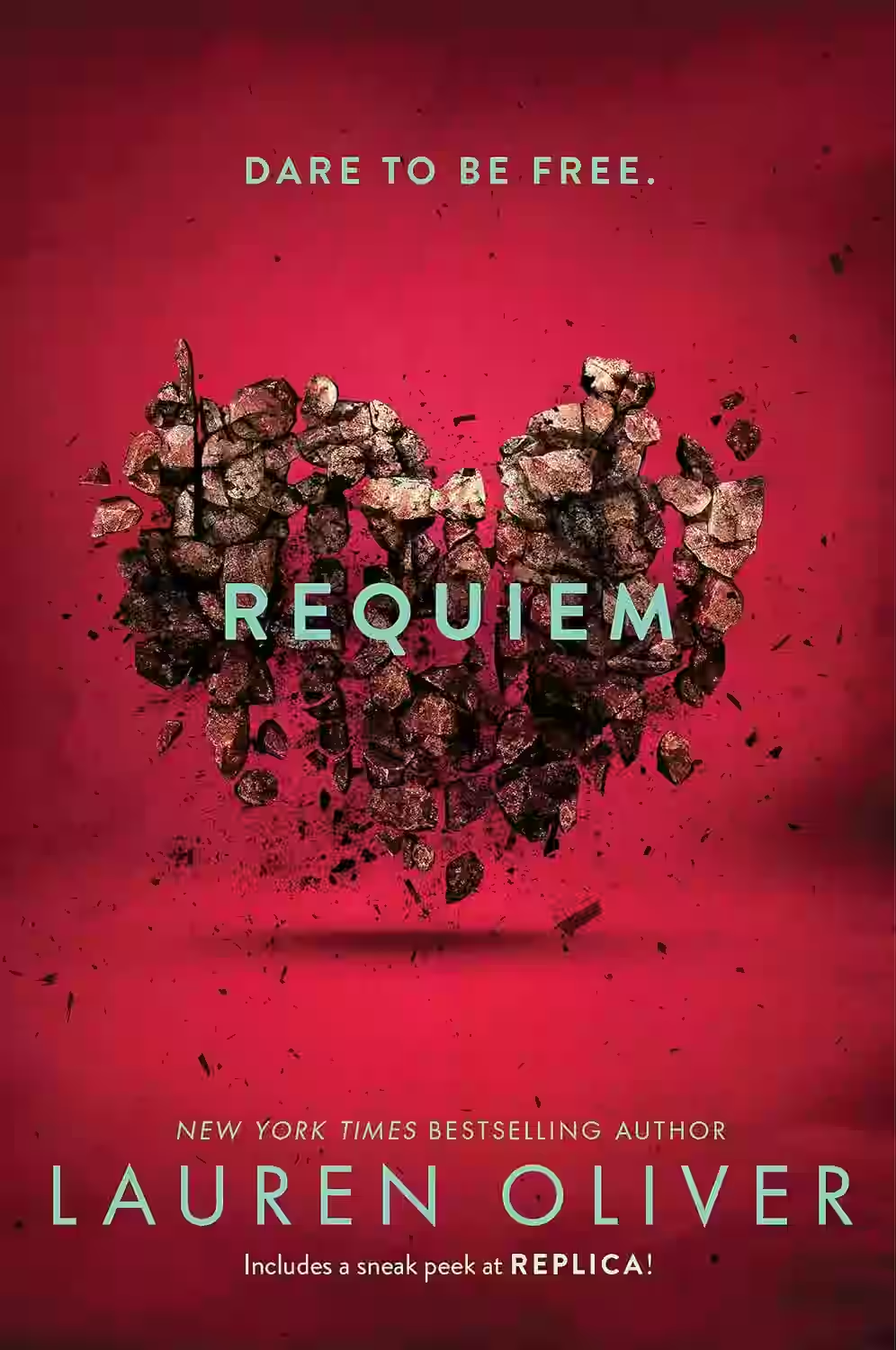
Requiem
Series: Delirium (#3)
In 'Requiem,' Lauren Oliver crafts a gripping conclusion to the Delirium Trilogy, diving deep into themes of love, freedom, and rebellion. The novel follows Lena as she navigates a society that seeks to eradicate love, seen as a dangerous disease. Torn between heart and survival, Lena battles conflicting emotions and the oppressive regime determined to end the resistance. Oliver masterfully weaves dual perspectives with Hana, Lena's former best friend, who offers a window into the 'cured' life. Through these contrasting lenses, the story examines loyalty and individual choice in a dystopian world. 'Requiem' is an electrifying and thought-provoking conclusion that challenges the boundaries of control and what it means to be free.
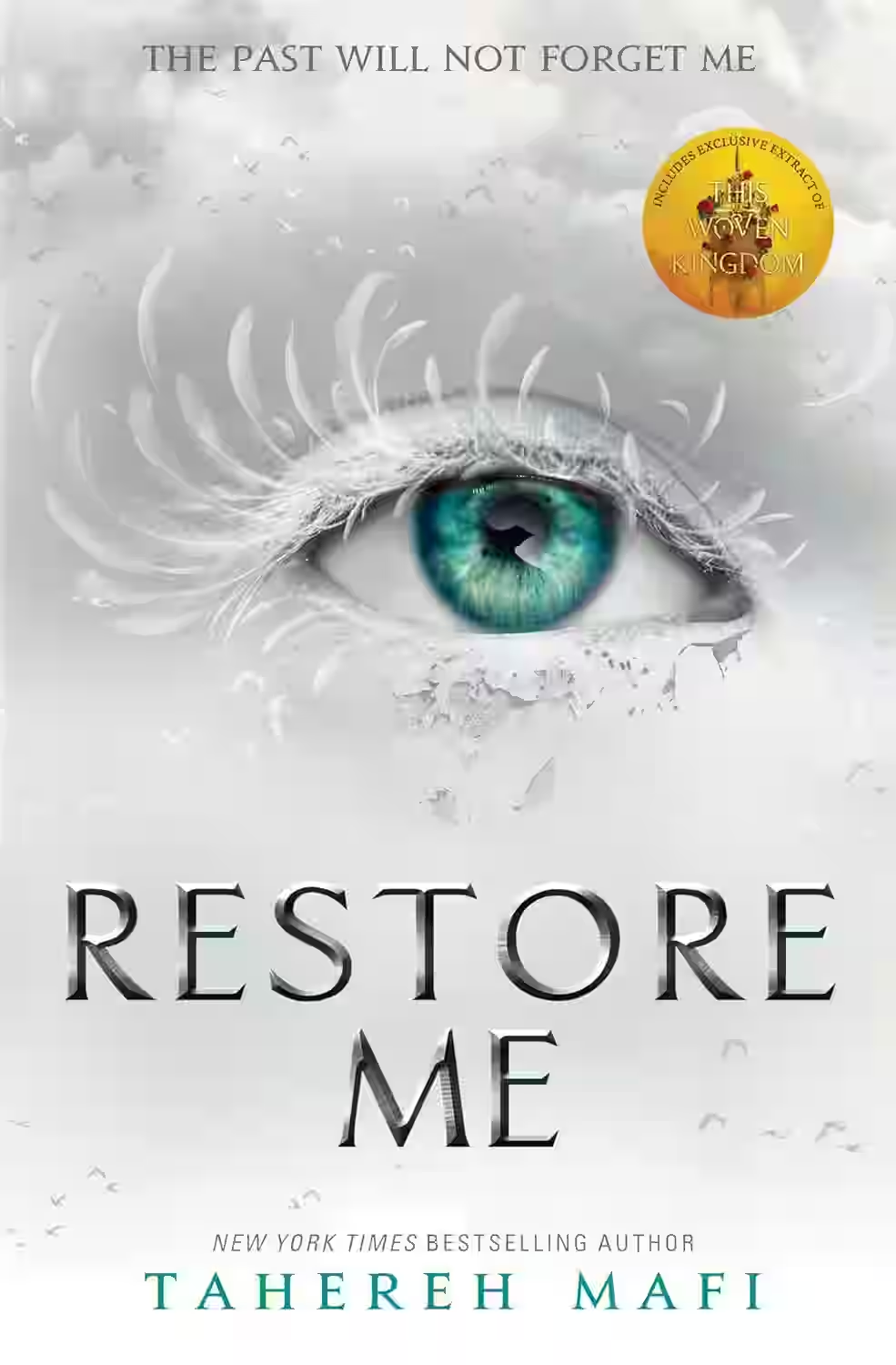
Restore Me
by Tahereh Mafi
Series: Shatter Me (#4)
In 'Restore Me,' the fourth installment of Tahereh Mafi's captivating 'Shatter Me' series, readers are thrust into a world post-revolution, where Juliette Ferrars is not only grappling with her newfound ultimate power but also the immense responsibilities of leadership. Mafi delves deep into themes of trust, identity, and the struggle between personal desire and duty. As Juliette navigates the fragile peace, she faces political intrigue and the looming shadows of those coveting her power. The narrative is enriched with vivid emotional depth, told through alternating perspectives of Juliette and Warner, intensifying the reader's connection to their inner tumult. Mafi's eloquent prose and imaginative dystopian setting make 'Restore Me' an enthralling continuation that explores the complexities of power and relationships under scrutiny, making it a must-read for fans craving intense emotional rollercoasters and intricate character development.
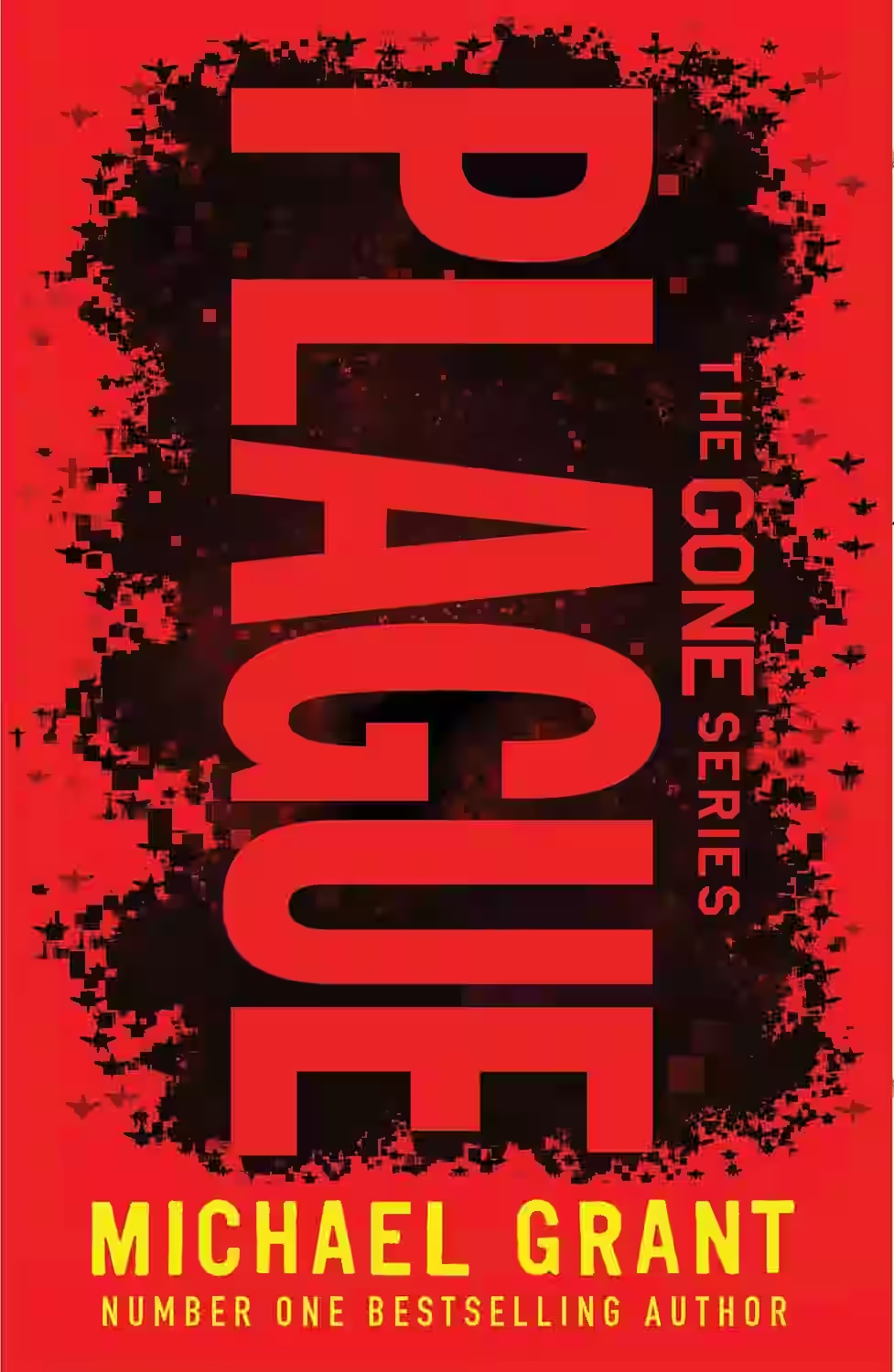
Plague
Series: Gone (#4)
In 'Plague,' the fourth installment of Michael Grant's 'Gone' series, the stakes intensify as the dystopian FAYZ (Fallout Alley Youth Zone) faces an apocalyptic challenge with the outbreak of a deadly disease. Amidst the chaos, Sam Temple and his peers are forced to combat not only the sickness but also their own growing fears and internal conflicts. Themes of survival, leadership, and morality are explored as the teens grapple with impossible choices in a society devoid of adults. Grant masterfully weaves a narrative that is both unsettling and enthralling, blending horror and suspense with a poignant portrayal of adolescent angst and resilience. 'Plague' resonates with readers through its vivid imagery and relentless pacing, leaving them eagerly anticipating the next twist in this gripping saga.
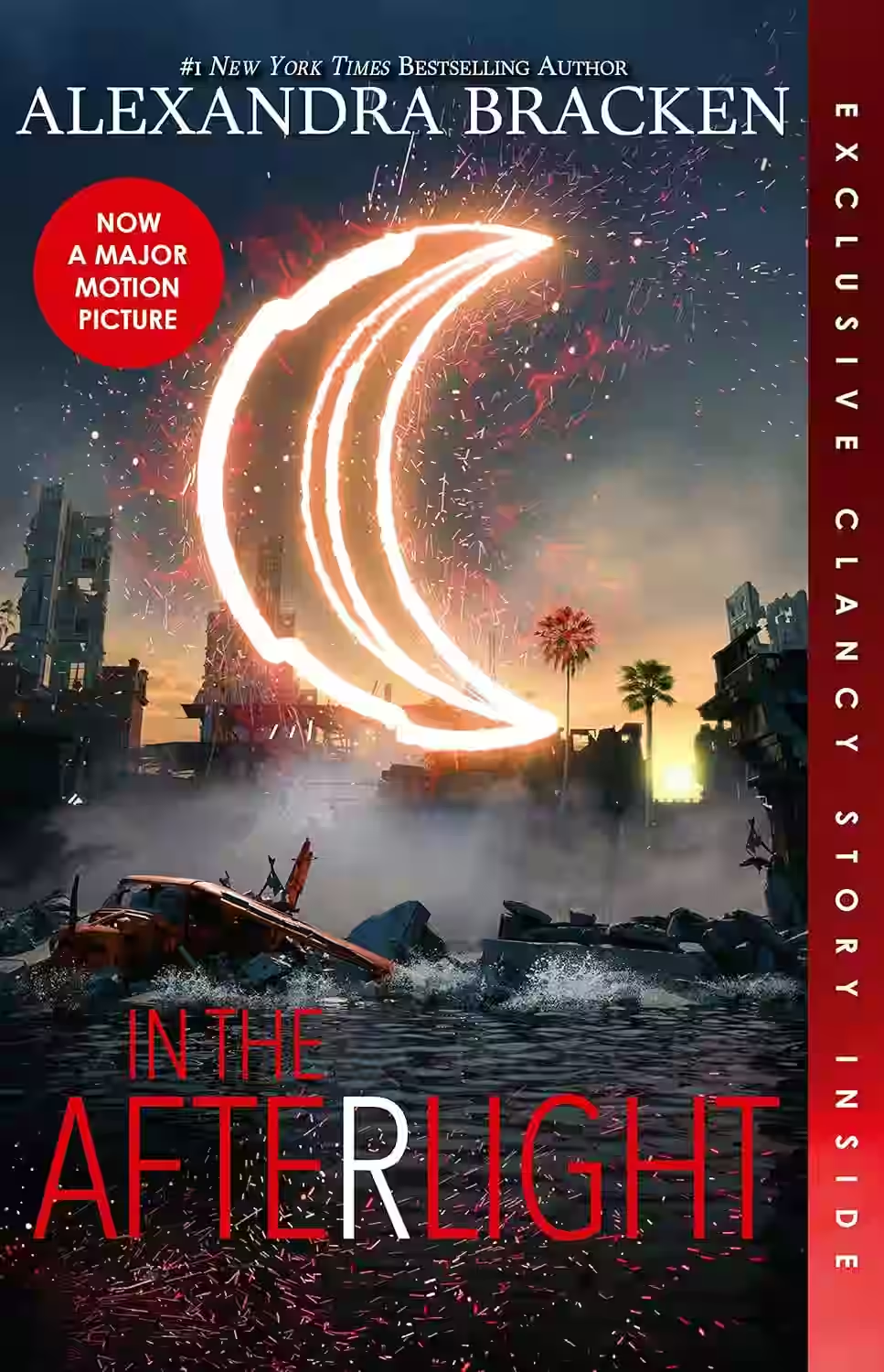
In the Afterlight
Series: The Darkest Minds (#3)
In the captivating conclusion to Alexandra Bracken's 'The Darkest Minds' series, 'In the Afterlight' draws readers into a world still reeling from chaos, where Ruby and her fellow Psi kids face daunting challenges as they strive to bring about change. The story unfolds with intense emotion and edge-of-the-seat suspense as Ruby takes on her role as the leader of the resistance movement. Bracken explores themes of power, responsibility, and sacrifice, painting a poignant portrayal of a fractured society in desperate need of healing. As friendships are tested and loyalties questioned, the novel delivers a gripping narrative that keeps readers hooked until the last page.
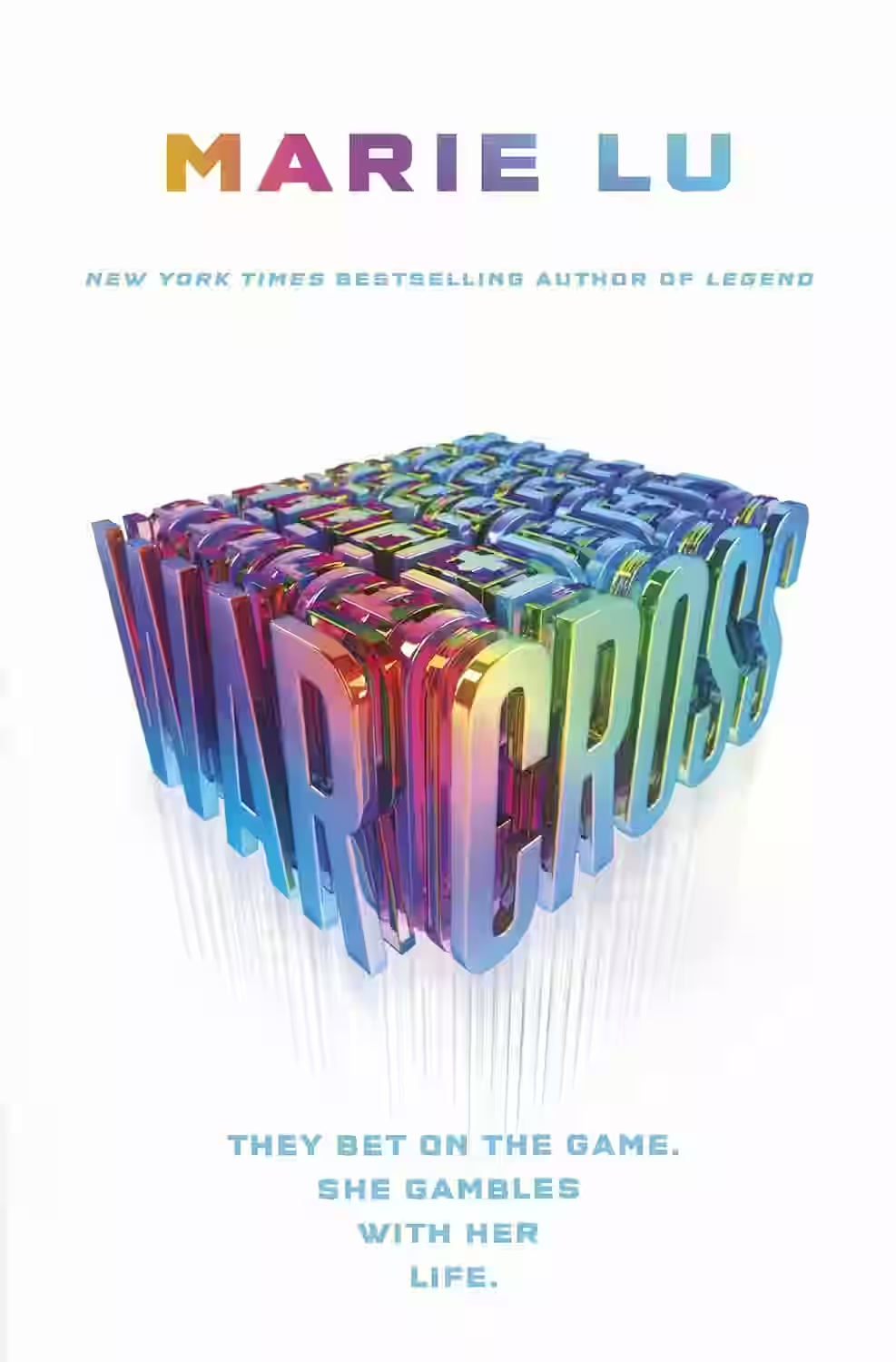
Warcross
by Marie Lu
Series: Warcross (#1)
Warcross by Marie Lu is a thrilling dive into the near-future world where virtual reality seamlessly blends with everyday life. The book follows the journey of Emika Chen, a young hacker and bounty hunter, who inadvertently glitches herself into the highly competitive Warcross Championships. Her actions draw the attention of the enigmatic creator of Warcross, Hideo Tanaka, who draws her into a more dangerous game within the digital realm. The narrative explores themes of reality versus illusion, the ethical dimensions of technology, and the quest for justice in a digitized world. Lu's deft storytelling, combined with a vividly imagined setting, offers readers an exciting exploration of the implications of advanced technology on privacy and identity. The fast-paced plot, complex characters, and underlying social commentary make Warcross a compelling read for both young adults and tech enthusiasts.
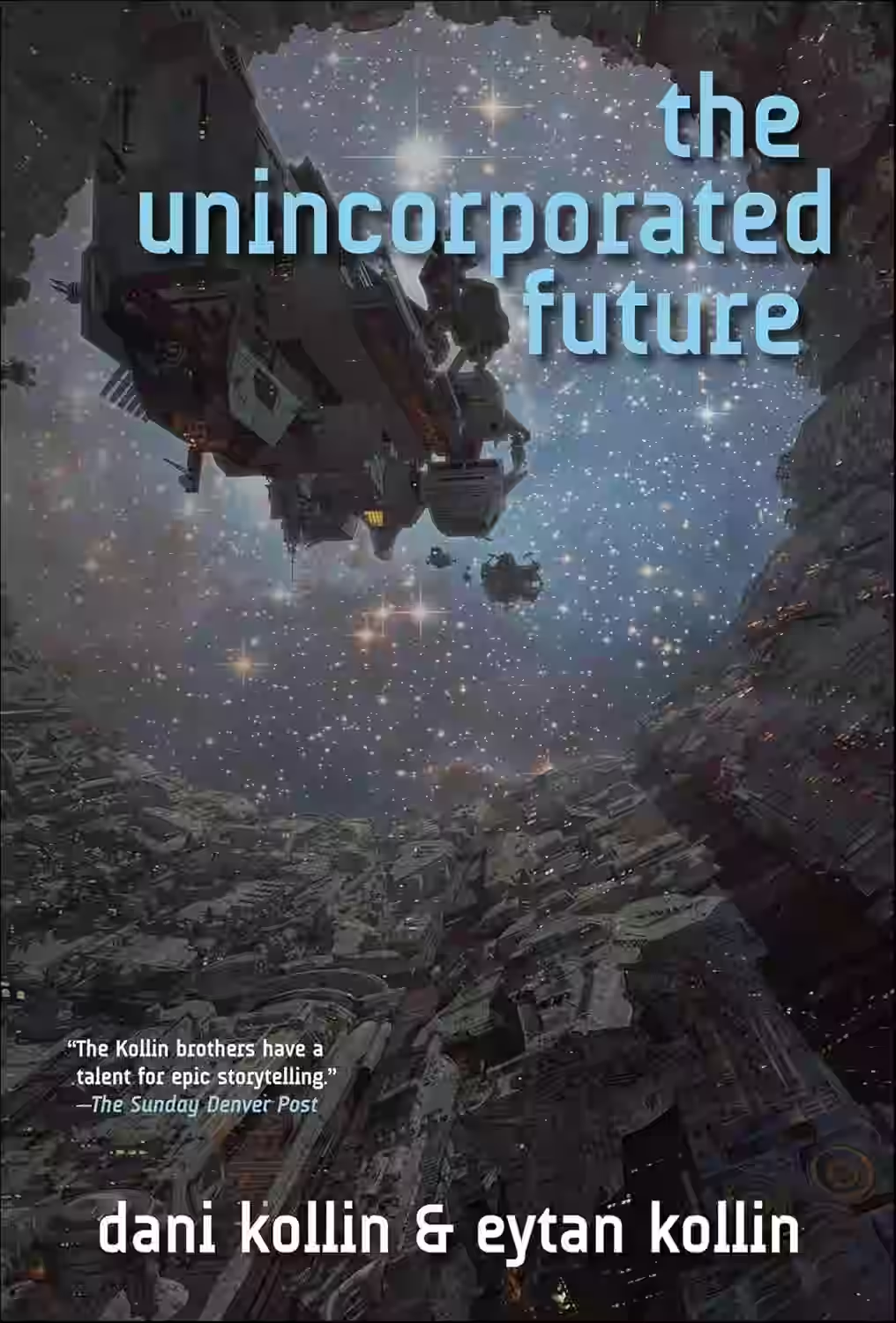
The Unincorporated Future
Series: The Unincorporated Man (#4)
In 'The Unincorporated Future' by Dani Kollin, readers are plunged into a richly imagined universe where the struggle between corporate power and individual freedom reaches its zenith. This sci-fi novel, the concluding volume in the Unincorporated series, paints a tapestry of interstellar politics and revolution as Justin Cord, the spiritual leader of the human diaspora, battles against the Balkanization of space and the encroaching corporatocracy. The book weaves intricate political intrigue with personal drama, questioning the true price of freedom and the overarching influence of corporations on human autonomy. Kollin masterfully blends innovative world-building with a fast-paced narrative, leaving readers contemplating the societal dynamics of our own world. Its vivid characterization deepens the plot, ensuring this futuristic saga resonates with both fans of the series and newcomers to the genre.
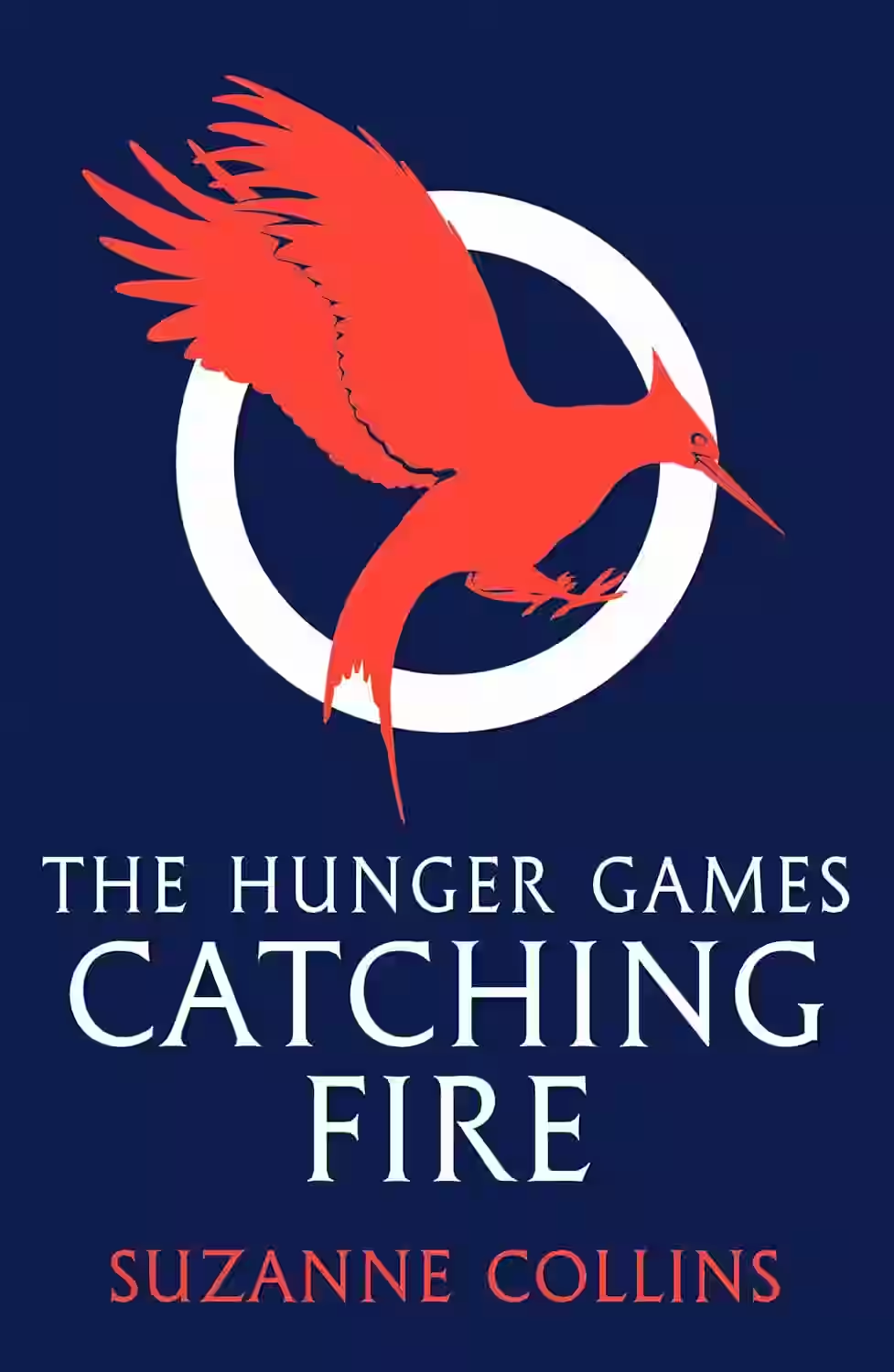
Catching Fire
Series: The Hunger Games (#2)
In 'Catching Fire' by Suzanne Collins, the second installment of the Hunger Games trilogy, readers are once again transported to the dystopian world of Panem. The story follows Katniss Everdeen after her victory in the brutal Hunger Games as she unwittingly becomes a symbol of rebellion against the oppressive Capitol. Faced with the consequences of her defiance, Katniss must navigate a dangerous new arena in the Quarter Quell, where the stakes are higher and the challenges more treacherous. Collins expertly weaves themes of survival, sacrifice, and political intrigue into a gripping narrative that keeps readers on the edge of their seats.
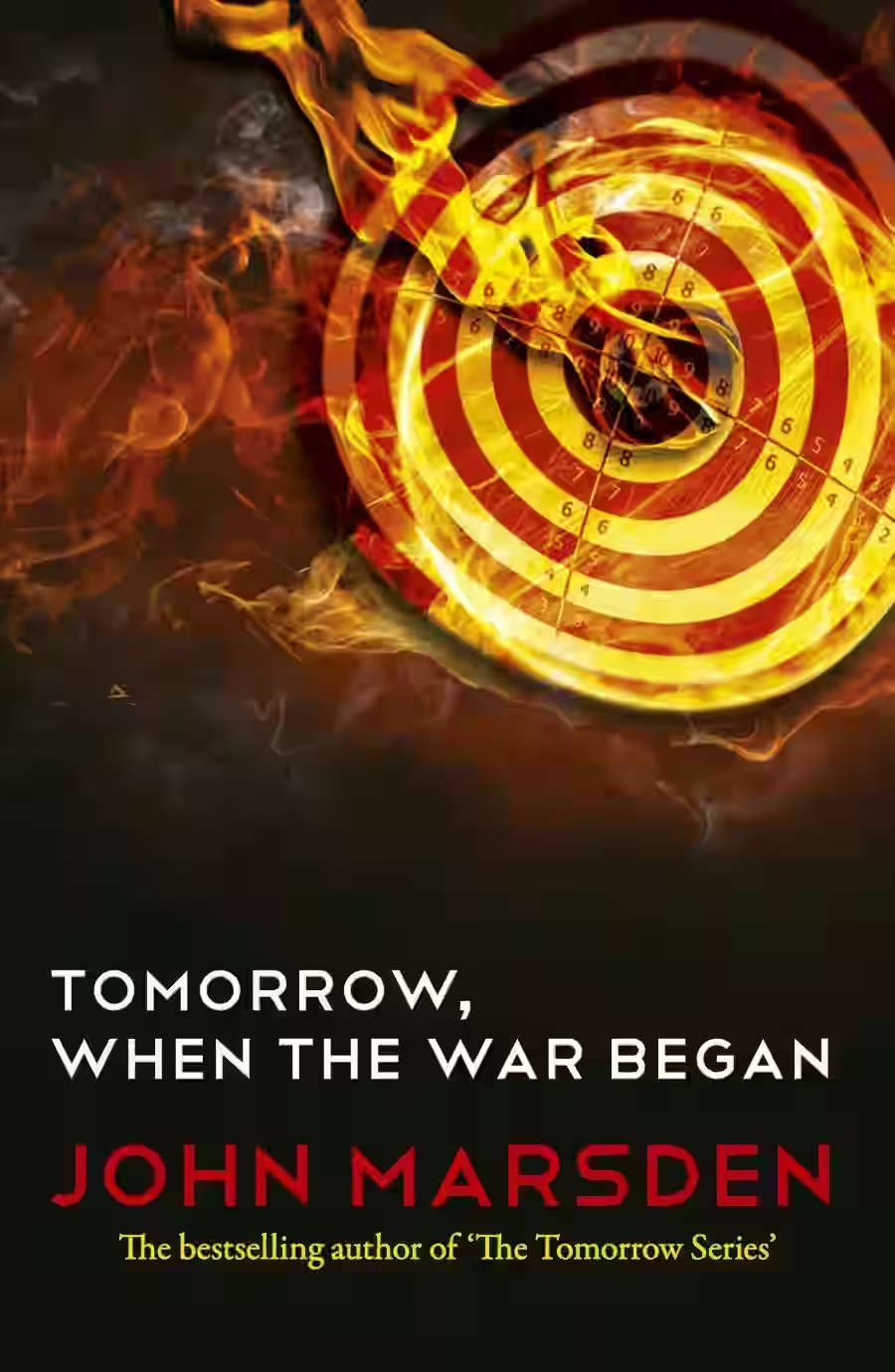
Tomorrow, When the War Began
by John Marsden
Series: Tomorrow (#1)
John Marsden's Tomorrow, When the War Began centers on Ellie and her friends, who return from a camping trip to find their Australian town invaded and their families captured. Faced with the horrors of war, the teenagers must adapt quickly, transforming from carefree youths to resistance fighters. The novel explores themes of survival, courage, and the loss of innocence, as the group navigates the challenges of guerrilla warfare. Marsden's gripping narrative offers a realistic portrayal of adolescence thrust into conflict, highlighting the resilience of the human spirit.